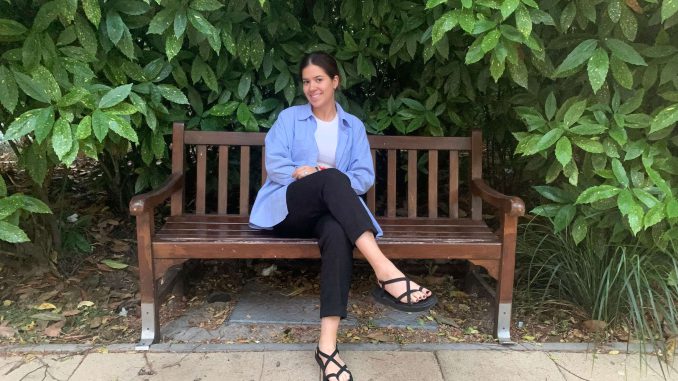
Written by Aikaterini Giatzaki
Dear person reading this, please don’t panic (I know what I am talking about).
If you are reading this, you are probably either thinking about applying for postgraduate studies, have an offer, or have even accepted a postgraduate offer from King’s College London. Congrats! But what now? After the initial excitement retreats, you slowly come to the realization that you have to get ready for another 1-2 years of exams and assignments. Again. Even though this time you are choosing the academic path with a (more) mature frontal lobe, thoughts of doubt occasionally manage to creep in and shadow your excitement and self-confidence. This is something that happens to the best of us more often that you would believe, trust me. A postgraduate degree is more academically challenging than a Bachelor’s, and in combination with the start of something new and unknown, it can be scary. These negative thoughts is what we want to avoid, and this is doable if you follow the following tips.
First, when you notice thoughts of self-doubt, take a deep breath. Think about your reasons of undertaking this path. If you struggle with imposter syndrome, learn to entertain the thought of ‘If they accepted me, that means that they believe that I am more than capable to do this!’ more often. This is something that really helped me during my moments of doubt. But, if you find yourself struggling more than normally, do not be afraid to reach out and ask for help through the universities counselling services, where you will be provided with a number of (free) therapy sessions. You can also prepare for your course before it actually starting, as universities tend to send out material to prospective students before the start of the program.
Some departments will send a reading list to their offer holders, and although you absolutely do not have to go through it for any exam, it is a start in order to feel more in control and in contact with your program before it even starts. However, this is totally up to you and does not foreshadow your performance during your degree. I wish there was someone to tell me sooner that just because I did not go through the reading list and chose to enjoy the rest of my soon-to-be-gone free time I am not less worthy or competent than my colleagues. There is a way to talk with current students and ask them how they prepared for the course as well.
You may have stumbled upon the uni-buddy app when researching about your course of choice. This app allows you to speak to a current student representative to gain insider knowledge and learn about their personal experiences regarding the program. This is a great way to ease one’s anxiety and expectations from this course. Personally, my unibuddy at the time helped me a lot with my anxiety and provided me with a very good picture of the program, and essentially they gave me that little push I needed and accepted my offer. I am glad that I can do the same now for future students. Of course, knowing the material and structure of a course are not what lay the foundations of a good postgraduate experience, alone.
Finding friends and picking up extracurricular activities is a crucial component that will make you feel connected to the course and the institution. It is something that will elevate your experience undoubtedly. Do not expect to make friends from the get-go though, it takes time for people to bond, and it is usually during the second semester, that you will feel that you are bonding with your colleagues. People are arriving to study from all around the world and have different priorities and needs. This is often the reason why it takes an average of 3 months to feel like you belong to a group. After this period though, the support you will provide to each other will ease the stress and pressure that could probably lead to feelings of loneliness. You will see that you are not alone, and that you are not the only one that can sometimes struggle with academics or personal issues. Belonging to a group feels like a big hug, and I would advise you to embrace that feeling.

Repeat after me: DO NOT leave things to the last minute. A Master’s is not a Bachelor’s, it is more challenging and requires an advanced level of responsibility and ability to work more independently on multiple projects at the same time. It would not be wise to expect a good grade for an assignment when you did it in two days. Unfortunately, that doesn’t work when you are doing a Master’s. Do not fall for the trap of ‘this won’t happen to me’. I also advise you to not leave revision until exam season is around the corner. Discipline yourself to go over the lectures at Christmas break, before the start of the second semester. Having notes will make your life easier for the second semester and you will feel better about yourself as you will have already gone over the material once. This will have a huge impact on your mental health and confidence, as you will trust yourself more. Try to do more preparation for your dissertation in the first term as well, as you will be less busy then. Thank me later.
During a postgraduate degree, time flies like crazy and it will all be over before you realize it. You will soon find yourself reminiscing the times were you attended interesting lectures and hung out with your friends, supporting each other and having fun. I wish I had said yes to more activities rather than worrying about my academic performance too much, I think it would have made my experience even better. My advice to you is: You got this, you are capable of many things, and do not neglect taking time off.
Overall, balance and discipline is key when taking up postgraduate studies. You will develop and acquire things you didn’t think you would. You become more skilled and responsible. Essentially, you are transforming into a better version of yourself. Peace, love and rock and roll, as a professor likes to say.
Written by Aikaterini Giatzaki
MSc Affective Disorders student 2022-2023

Leave a Reply